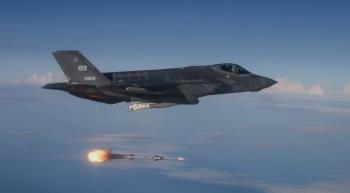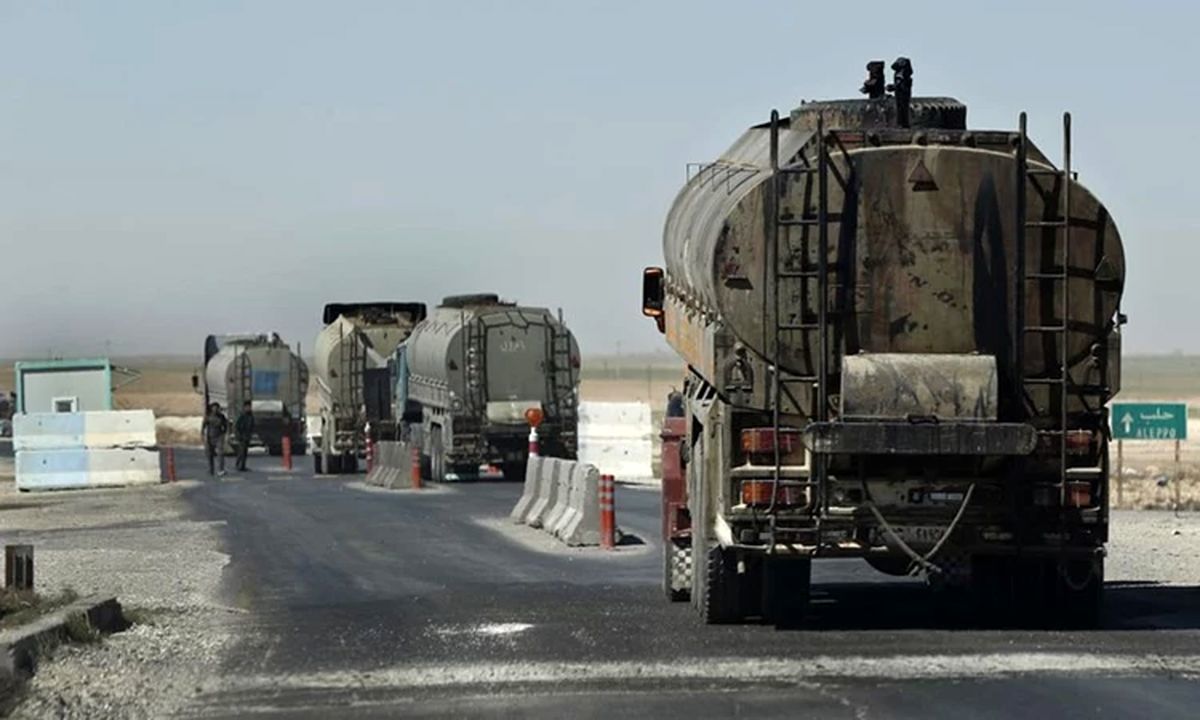Alwaght- Iraqi and Syrian sources reported airstrikes Wednesday night on a fuel tanker convoy at Qa’im-Bukamal border crossing between Iraq and Syria. According to Al-Alam news network, the targeted convoy included tankers carrying fuel to Lebanon via Syria. Other vehicles stopped moving when two of the tankers came under attack.
There has been no claim of responsibility yet by any party, but Saberin News, an Iraqi outlet, blamed the attack on American drones.
Despite the fact that the Iraqi media have identified the US as the party behind this attack, an American official in a conversation with a BBC reporter claimed that this attack was carried out by unknown agents and that Washington had no role in it. On the other hand, some sources claim that the Israeli regime was responsible for this attack. But regardless of which one of these two is responsible, the goals of this attack are in line with the conspiracy that is being pursued against the stability of Lebanon and the economic progress of the region.
Lebanon's energy crunch amid American pressures
The fuel tankers that had entered the Qa’im-Bukmal border with a traffic permit in Iraq to enter Syria were on their way to Lebanon. Lebanon, which has been facing a major economic crisis in recent years, has had problems in providing cash for fuel purchases in the past year. This challenge has worsened with the increase in energy prices in international markets in recent months, with the Lebanese bearing the brunt.
The fuel shortage is one of the most painful aspects of the ongoing economic crisis in Lebanon, which has caused prices to rise. Al-Monitor news outlet reported last month that the situation has become so dire that some Lebanese are now cooking on firewood.
Also, the lack of fuel has caused widespread power outages, and at some times during the past months, only 1 to 2 hours of electricity have been supplied to the household sector. Power outages across the country, along with the departure of many doctors, have led to the deterioration of the health sector in Lebanon, as warnings have been issued about the impending collapse of the health sector.
In the meantime, the Lebanese government has cash shortage as its reserves are draining. The central bank of Lebanon in August 2021 cut the the subsidy for the fuel. In fact, since the beginning of the economic crisis, the central bank has been using its dollar reserves to finance fuel imports so that the prices of goods and services do not increase too much.
Driven by this situation and the inability of Lebanese officials to solve the energy problem, Hezbollah suggested buying fuel from Iran. As a result, in September, Lebanese sources announced an agreement to get fuel from Iran.
Al-Manar news network reported that the Iranian side told the Lebanese delegation in Tehran that it agreed to export 600,000 tons of fuel to Lebanon within 5 months.
In addition, the Lebanese government signed an agreement with Iraq earlier this summer, according to which Baghdad will provide Lebanon with one million tons of fuel for a year. Lebanon, in turn, agreed to provide medical expertise to Iraq.
In the middle of those conditions, the stances of the Lebanese officials showed that they are under pressure from the American embassy not to import fuel from Iran and Iraq. President Michel Aoun, on August 19, 2021, after meeting with the American ambassador to Lebanon Dorothy Shea, raised the Washington promise to transfer gas from Egypt and electricity from Jordan to Lebanon through Syria. The plan was never implemented and the Lebanese continued to suffer in the crisis. In fact, the plan to import gas and electricity from Egypt and Jordan was made only to cover the American foul play in Lebanon and its share in intensification of the economic predicament in Lebanon.
Hizbollah's move to facilitate the fuel purchase deal with Iran and Iraq and more importantly, playing an active role in Lebanon's gas deal victory over the Israeli regime resulted in a lot of popularity for the resistance movement, and this is something that America is extremely afraid of. Therefore, the US clearly has a vested interest in preventing the resolution of Lebanon's energy problem.
Qa'im-Bukmal border crossing key to Iran link to the Mediterranean
Iraq and Syria share about 605-km land border, a majority of which is in the adjacent provinces of Deir ez-Zor in Syria and Al-Anbar.
As a result of the equations driven by the emergence of ISIS terrorist group, the forces of the Axis of Resistance— a regional alliance comprised of Iran, Iraq, Syria, Lebanon, Yemen, and Palestine— find the common Iraq-Syrian border as the core linking ring and facilitator of strategic influence.
Bukamal border crossing is located in Deir ez-Zor province of Syria south of the Euphrates River and in the farthest southeast and on the Iraqi side is located in Qa’im town of Al-Anbar province, in the west of the country. The administration of this important border crossing and its surrounding areas, which plays a vital role in providing security and commercial exchanges between Syria and Iraq, facilitates Iran's access to the Mediterranean coast in Lebanon and Syria and establishing a regional transit highway from the Persian Gulf to the Mediterranean and an international one joining the East-West Corridor from Chabahar port of Iran to Mediterranean. The US is strongly against the project and bends over backwards to foil it.



























